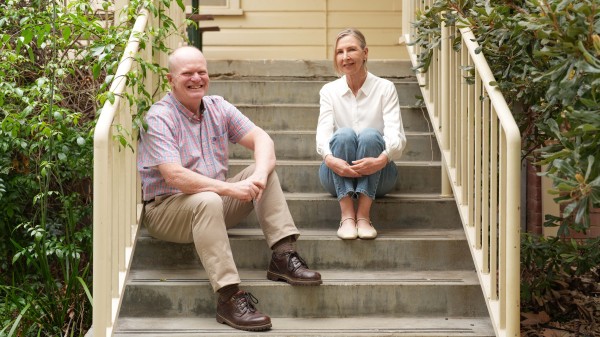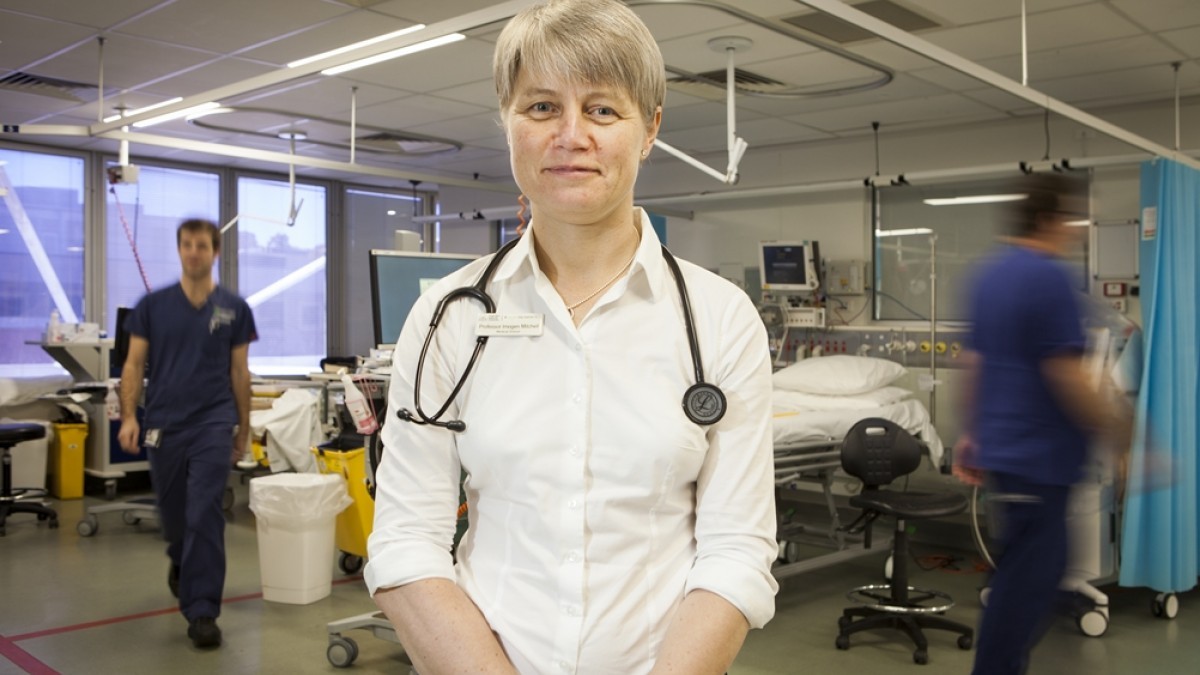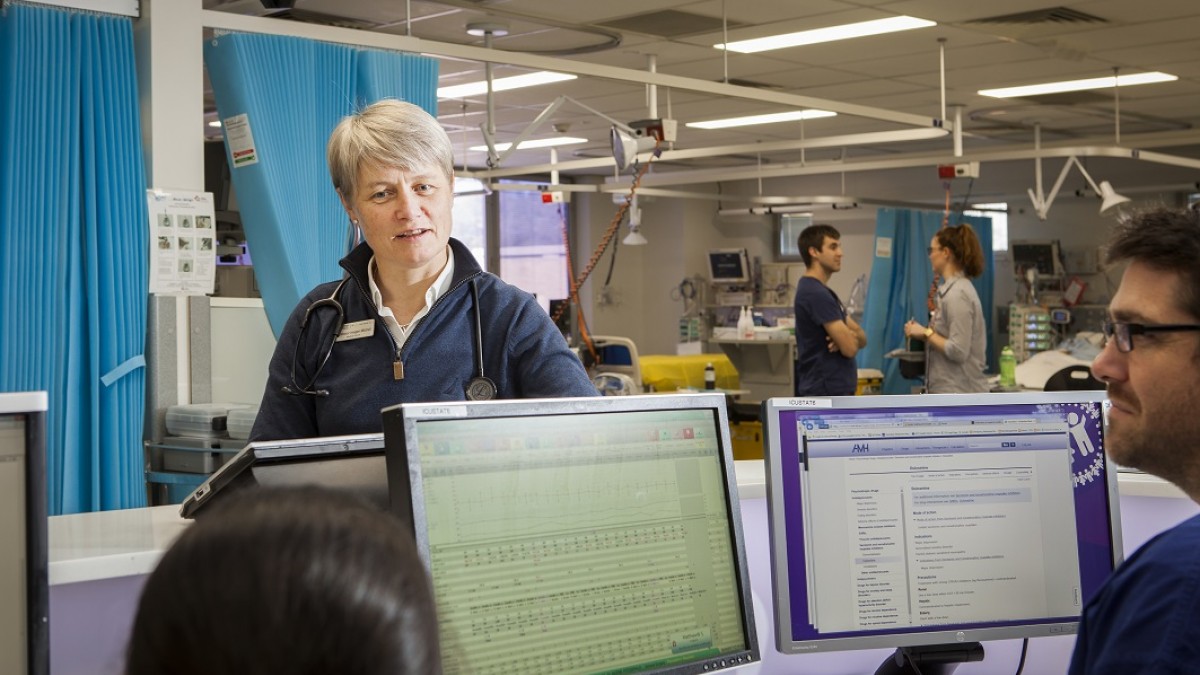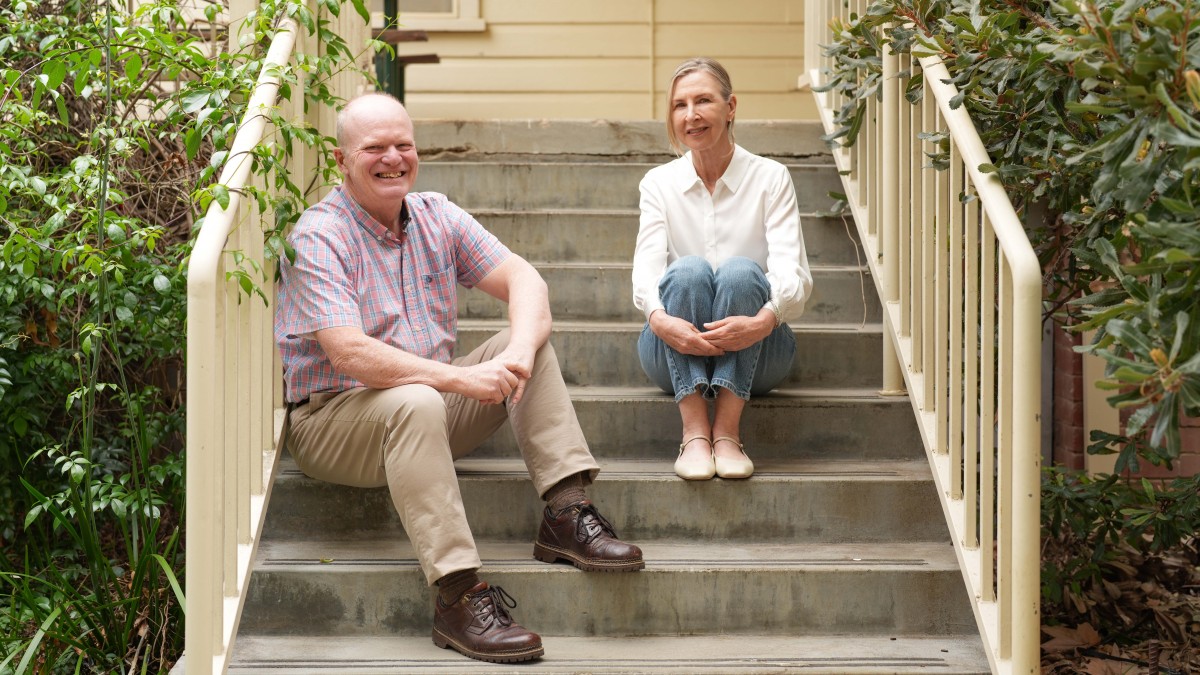"You don’t ever want to go in that room,” Professor Imogen Mitchell says, pointing at a doorway as we walk through the corridors of the Canberra Hospital.
I’m at the hospital to write a series called ‘Inspiring Doctors’. The photographer and I have spent the day walking with 10 different doctors through parts of the hospital I didn’t even know existed, and past many rooms I never want to go in. This room, however, seems perfectly innocuous. A small meeting room in the intensive care unit (ICU) with pastel-coloured chairs.
“That’s where you get the difficult news,” Mitchell explains.
This room is where families meet with doctors in the ICU who must then tell them that, in spite of all the medical interventions, they are not able to help their loved one. If I ever went in that room, it would be one of the worst moments of my life.
But, what if you have to go into that room over and over again, sometimes multiple times in one day, in the course of your working week? This is what intensive care specialists like Mitchell do and, while delivering bad news is obviously not as bad as receiving it, it still comes at a cost.
Clinical practice guidelines for how doctors should break bad news have traditionally focused on reducing the impact on patients and their families. However, according to Associate Professor Rhonda Brown, of the ANU Research School of Psychology, a more holistic approach is required.
“From the other point of view, the doctor can find the task really, really stressful and anxiety provoking,” she says.
“Nobody likes to be the bearer of bad news or deal with another person’s emotional response after the fact, but the impact can be even worse for doctors. They are often chronically stressed, clinically burnt-out and emotionally exhausted, so the thought of embracing an experience like that and sitting down with an emotional patient can be especially confronting.”
In studies measuring stress responses in doctors who are delivering bad news in simulated consultations with (very convincing) actors, Brown’s research group has been able to identify ways to potentially minimise the negative impacts. Counter-intuitively, it’s by embracing this upsetting experience – rather than avoiding it or trying to hurry it – that doctors can reduce their own anxiety.
One of her PhD students found that, while all doctors in the study were stressed in anticipation of the consultation, stress levels resolved more quickly in doctors who engaged actively and empathetically with the patient.
While emotional distance can often benefit doctors in some situations, especially in an emergency, it can be harmful in interactions like breaking bad news.
“It’s pretty clear that, although it’s a difficult task for doctors, if they just jump in there and engage with the patient and deal with the news as best as they can, even if they cry themselves, the better off they are psychologically.”
When Mitchell describes how she feels when she’s telling families bad news, she says, “I don’t ever visibly cry, but I knock my head back so the tears are going down the right way, and certainly my voice will falter. Some cases will have more connection with me personally because in some way I can relate to the family. Then I can get quite emotional.”
It sounds hard to believe, but Mitchell says this does not make her feel stressed, nor does the emotion compound over the course of the week.
“I give them my heart,” she says. “I genuinely speak from the inner core; the human me.”
This sounds like a personal sacrifice that would come at a great cost, but it’s actually to her gain. By leaning in to the emotion and the humanity of the encounter, Mitchell is not only providing compassionate support to the patient’s family, but also bolstering her own protections against stress-induced burnout.
As Director of the ANU Medical School, Mitchell says she would like to see better training on the benefits of compassion for both doctors and patients when breaking bad news.
“I have a problem though,” she says. “I am led to believe that I do it quite well, but I have never had the time to deconstruct how I communicate with patients and family in order to teach it.”
This is exactly the kind of problem the ANU Institute for Communication in Healthcare was created to tackle. Linguists from the Institute have started recording, with consent, the bad news interactions of Mitchell and five of her colleagues at the ICU so they can study them closely and make recommendations for end-of-life communication that benefit all of the people involved.
“These recordings are so important,” Mitchell says. “It’s such a difficult time for patients and their families, so it’s otherwise very hard to get data on their reactions and perspectives on what is happening in those conversations.”
She says in addition to improved clinical training in breaking bad news, doctors need better support structures. In a recent survey of 2500 healthcare professionals, 18 per cent reported having had a negative experience resulting from end-of-life care of a patient, she says.
“I think that’s a high number of people to be traumatised, and yet rarely have we put formal support mechanisms in place,” she says. “If a police officer has worked on a horrific accident, they will get time off and support. The difficulty is for doctors you’re on the frontline the whole time and there’s no downtime.
“There are lessons we must learn from other disciplines. The ‘stiff upper lip’ attitude we have of doctors is changing, but not fast enough.”












